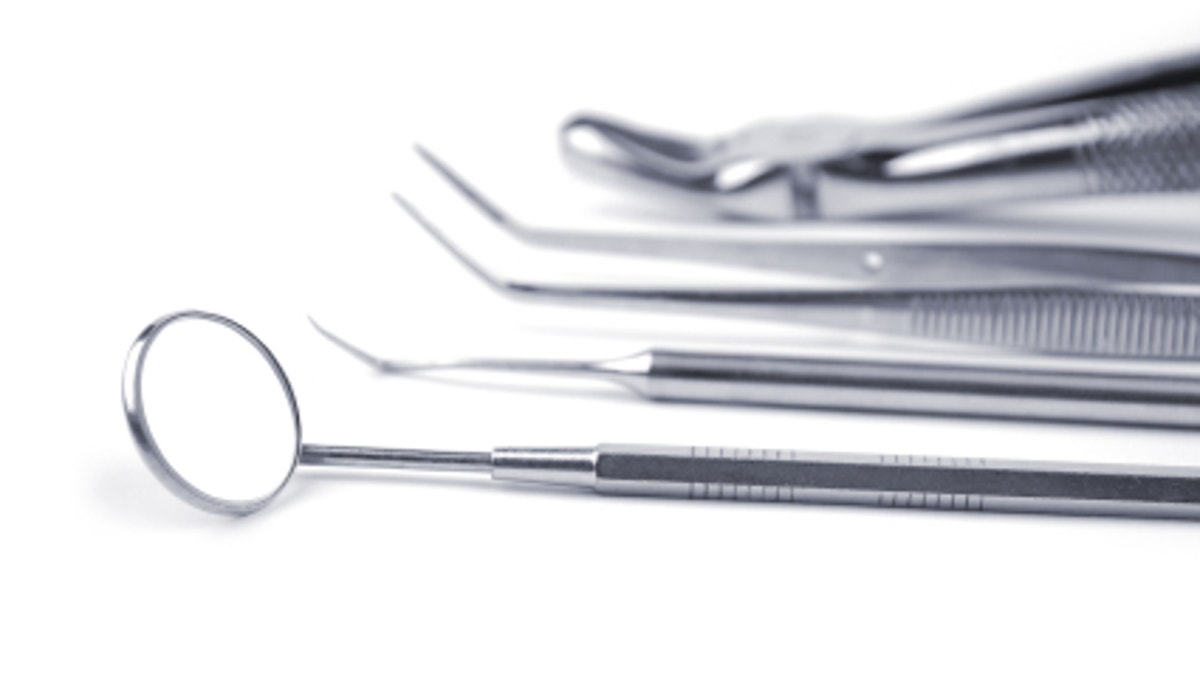
Dental tools on a white background. Selective focus.
NEWARK, N.J. – His son's first fainting episode happened two years ago in June, Rene Del Grosso remembers. His concern grew with each recurrence, heightened by the fact doctors couldn't pinpoint a cause.
It took four months for tests to reveal it was a form of endocarditis, an often slow-developing inflammation of the inside lining of the heart chambers and heart valves.
More troubling, the source was a Morris County dentist who, according to an investigation by the state Department of Health, has been linked to heart infections in at least 14 other patients, most of whom had to undergo heart surgery and one of whom died. The dentist, John Vecchione, is still allowed to practice under terms of a consent order signed last month.
The Del Grossos were an unwitting catalyst to the Vecchione investigation, said James Lynch, an attorney representing the Jefferson Township family. An infectious disease specialist at Morristown Memorial Hospital who examined Ryan Del Grosso in the fall of 2014 realized he had seen another patient with a similar diagnosis who also had had oral surgery performed by Vecchione.
A few weeks later, the state Board of Dentistry notified the Department of Health of a case from December 2012, bringing the total to three.
During a visit to Vecchione's office in November 2014, state and local health inspectors found "multiple safety breaches" including the use of single vials of medication for multiple patients, the storage and use of unwrapped syringes, poor hand hygiene and the use of non-sterile products such as multiple-use alcohol dispensers.
A follow-up visit in January 2015 found Vecchione had made changes to his procedures but that "deficiencies were still noted."
Vecchione has offices in Parsippany and Budd Lake, but the Department of Health didn't specify which one it visited.
The department's final report released last month uncovered 15 patients who developed enterococcal endocarditis after undergoing oral surgery using intravenous sedation at Vecchione's practice between December 2012 and August 2014. Twelve patients required heart surgery; one patient died from complications. The report says the magnitude of the outbreak "is likely to be greater than the number of cases detected."
The incidence of enterococcal endocarditis following oral surgery is rare, according to the report — about 1.5 cases per 100,000 patients annually nationwide. Patients at Vecchione's practice in 2013 and 2014 were nearly 250 times more likely to develop the infection, the report concluded.
Lisa Coryell, a spokeswoman for the state Board of Dentistry, said the board was satisfied Vecchione is making changes to correct any problems.
"Following two inspections of Dr. Vecchione's office, and a thorough review of his patient records, the (Board of Dentistry) identified several policies, protocols, and procedures in need of change," Coryell said. "Dr. Vecchione voluntarily agreed to implement those changes, which were memorialized in a Consent Order signed by both parties."
Vecchione didn't immediately return a phone call seeking comment Tuesday, and his attorney declined to discuss the investigation.
Del Grosso wonders whether his son's nightmare could have been avoided if regulators had acted more quickly after the December 2012 case was uncovered. But under state regulations, single cases of endocarditis and enterococcal infections don't have to be reported to public health authorities, according to the health department report.
For Ryan Del Grosso, now 25, life hasn't returned to normal. After heart surgery at New York-Presbyterian Hospital, he had to be confined to his home for about three months to receive medication. The ordeal left him with some hearing loss and severe tinnitus (ringing in the ears), making it difficult for him to fall asleep most nights until well into the early morning hours, his father said.
"It's been horrific for him," Rene Del Grosso said. "And to watch your kid, as a parent, when you can't do anything about it. And the worst part is, none of this had to happen."
